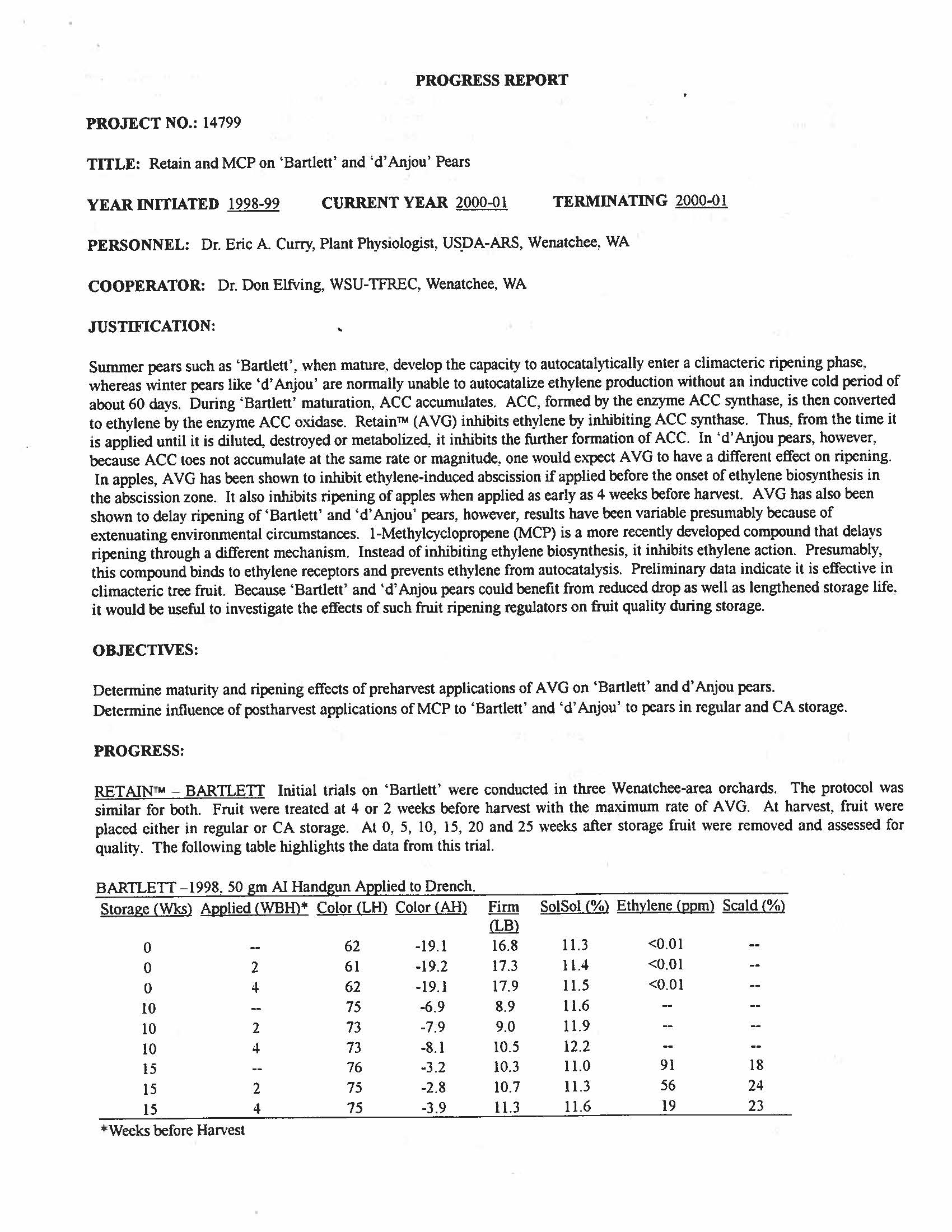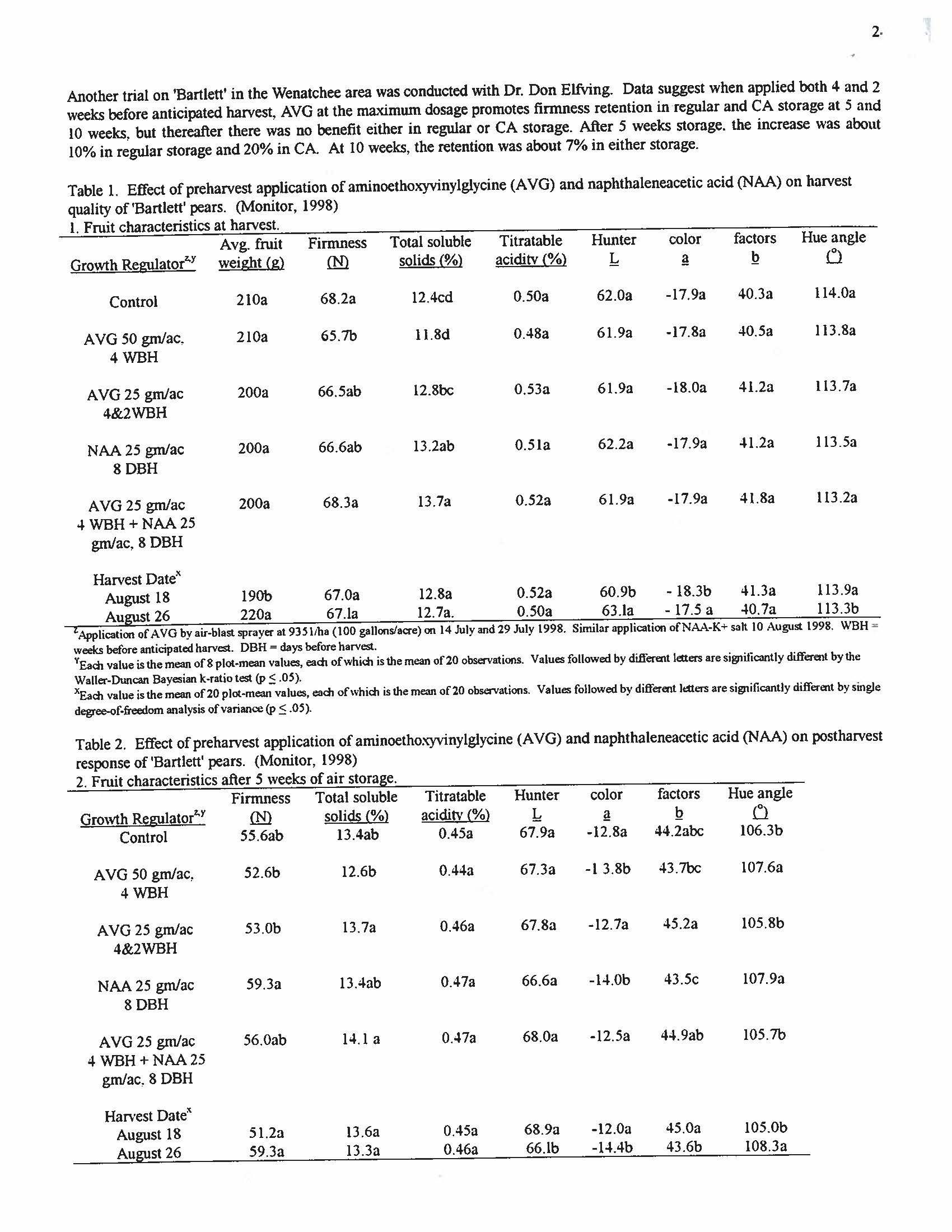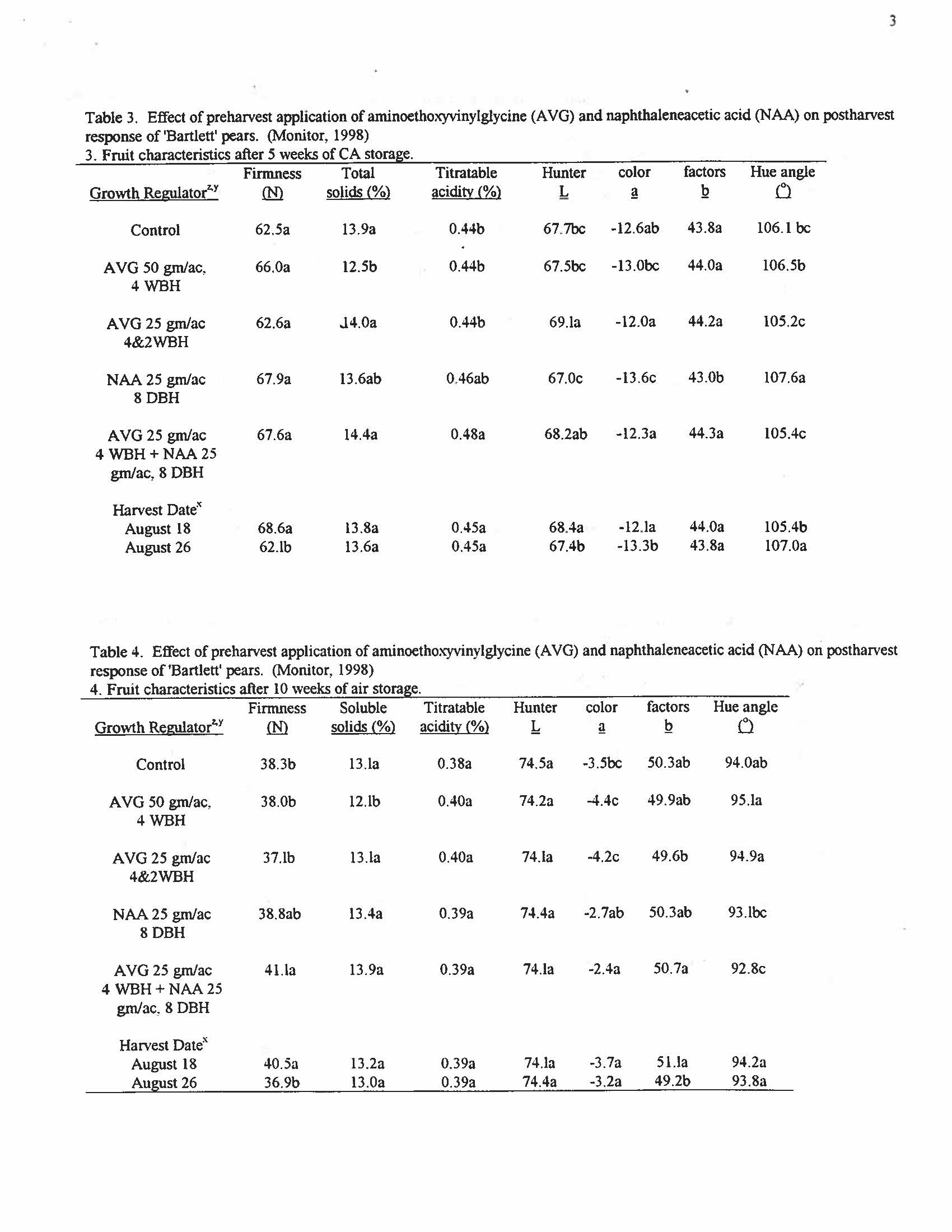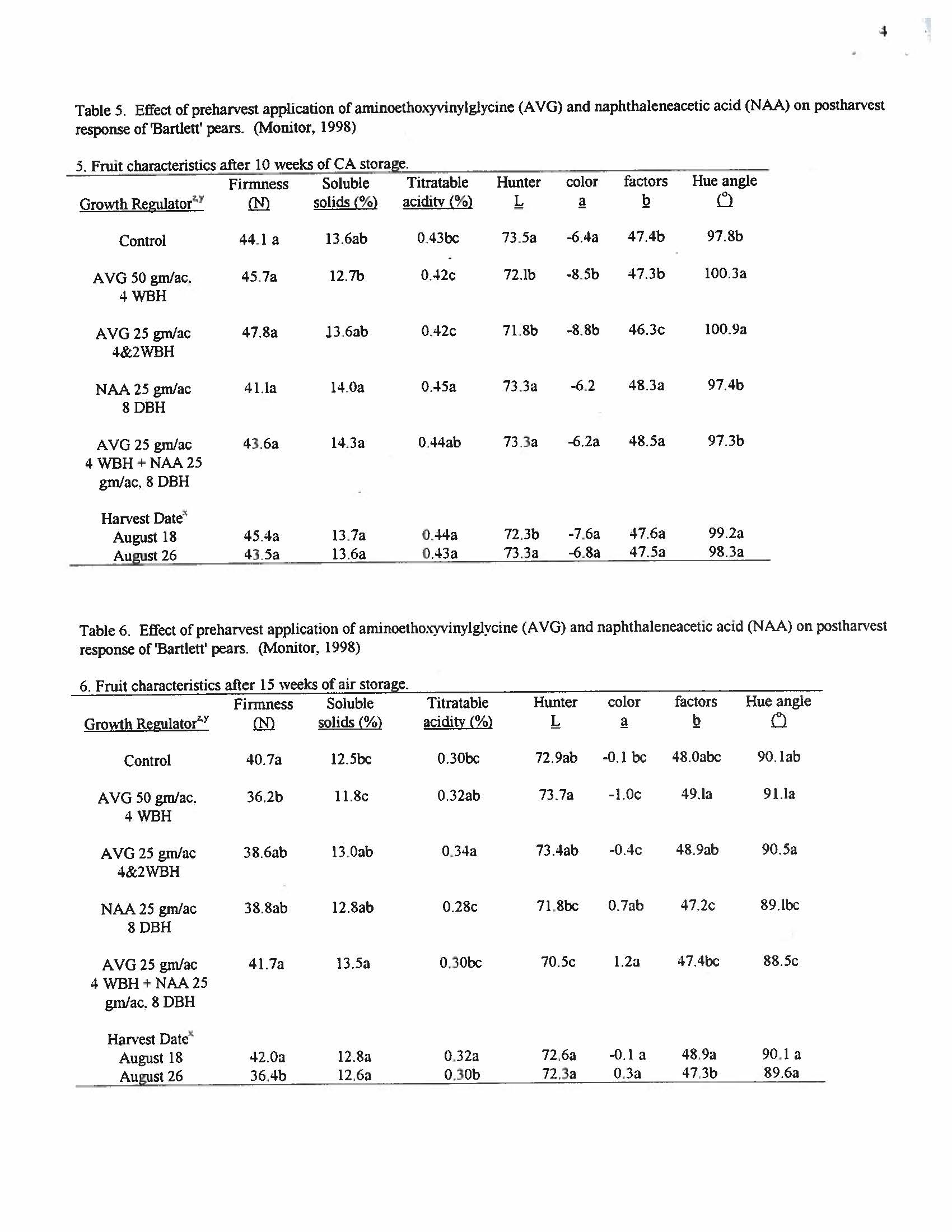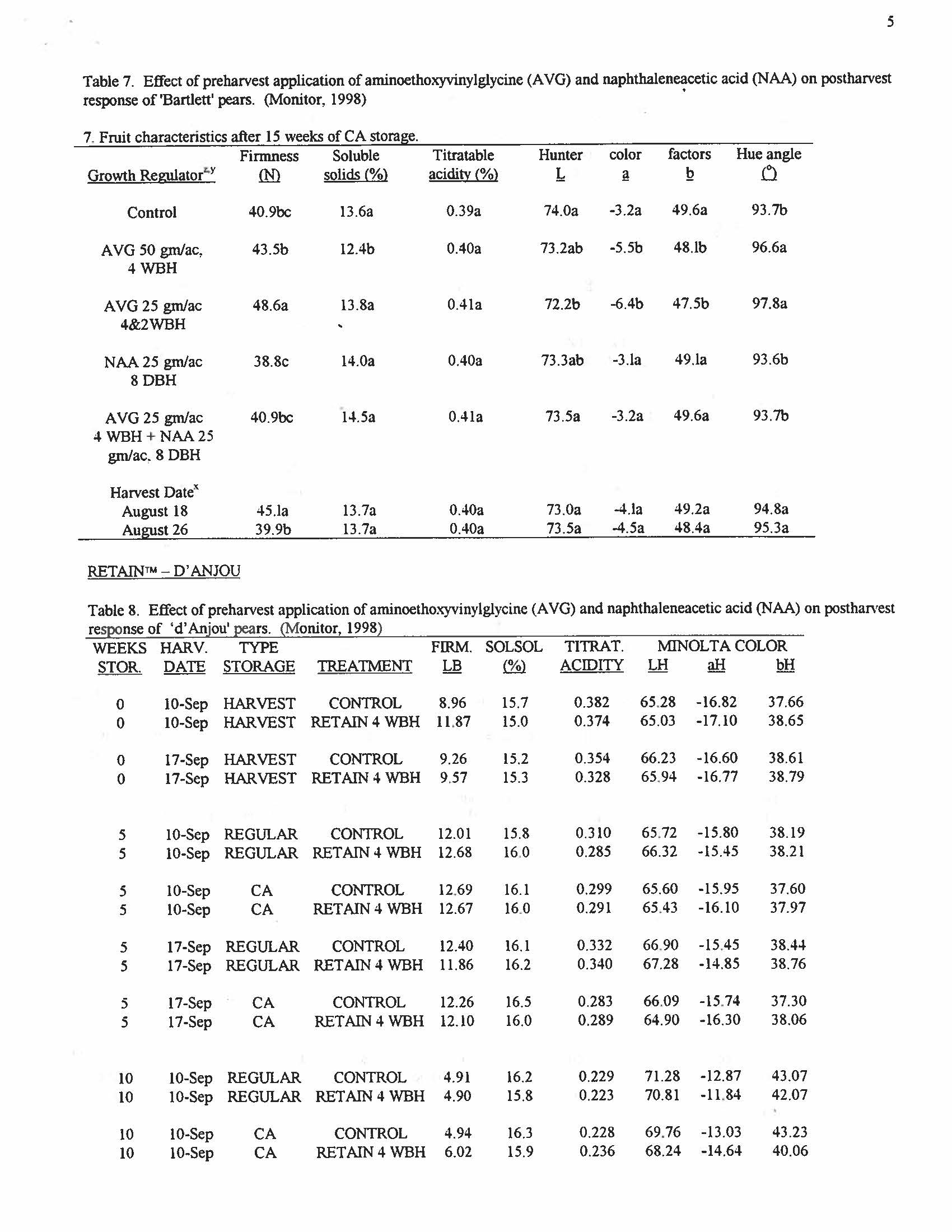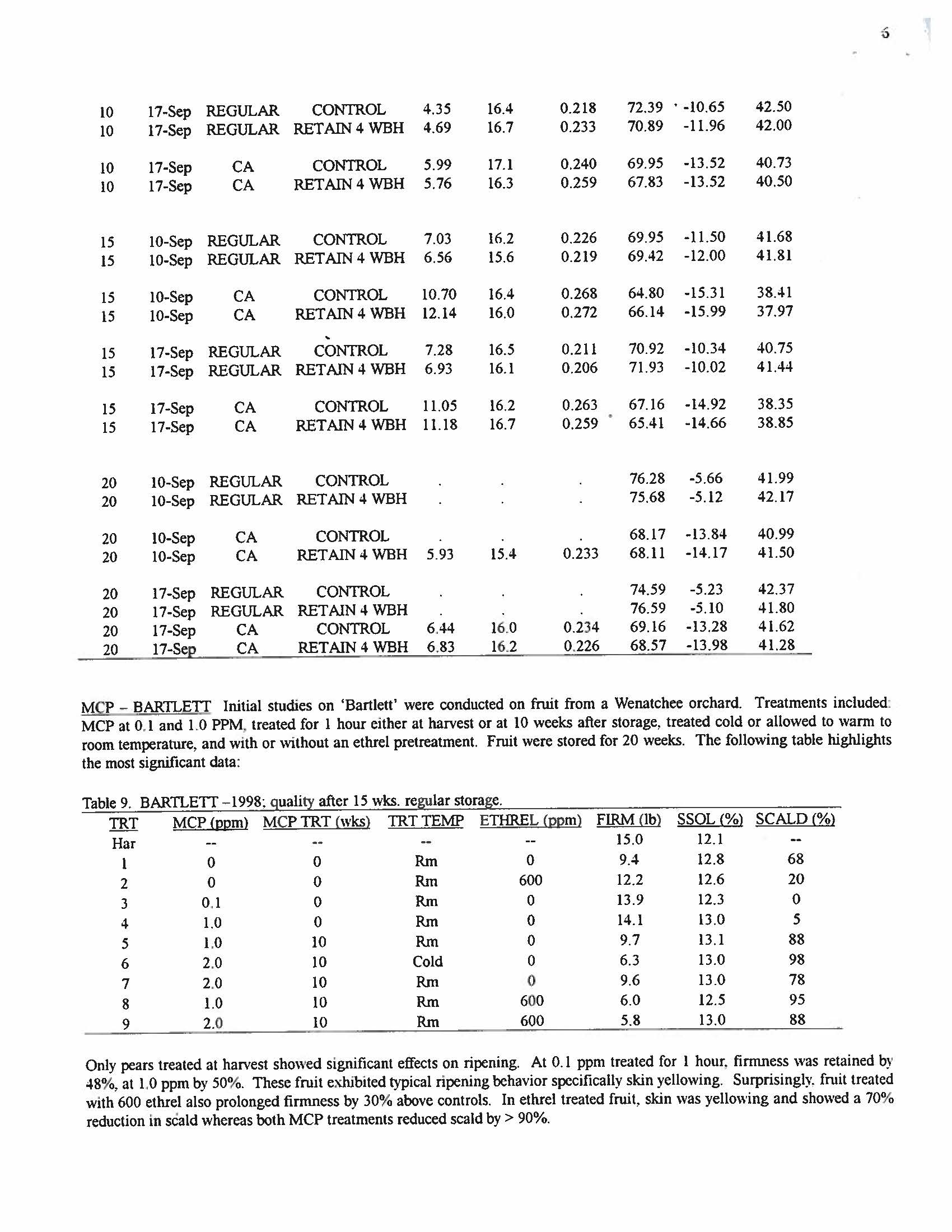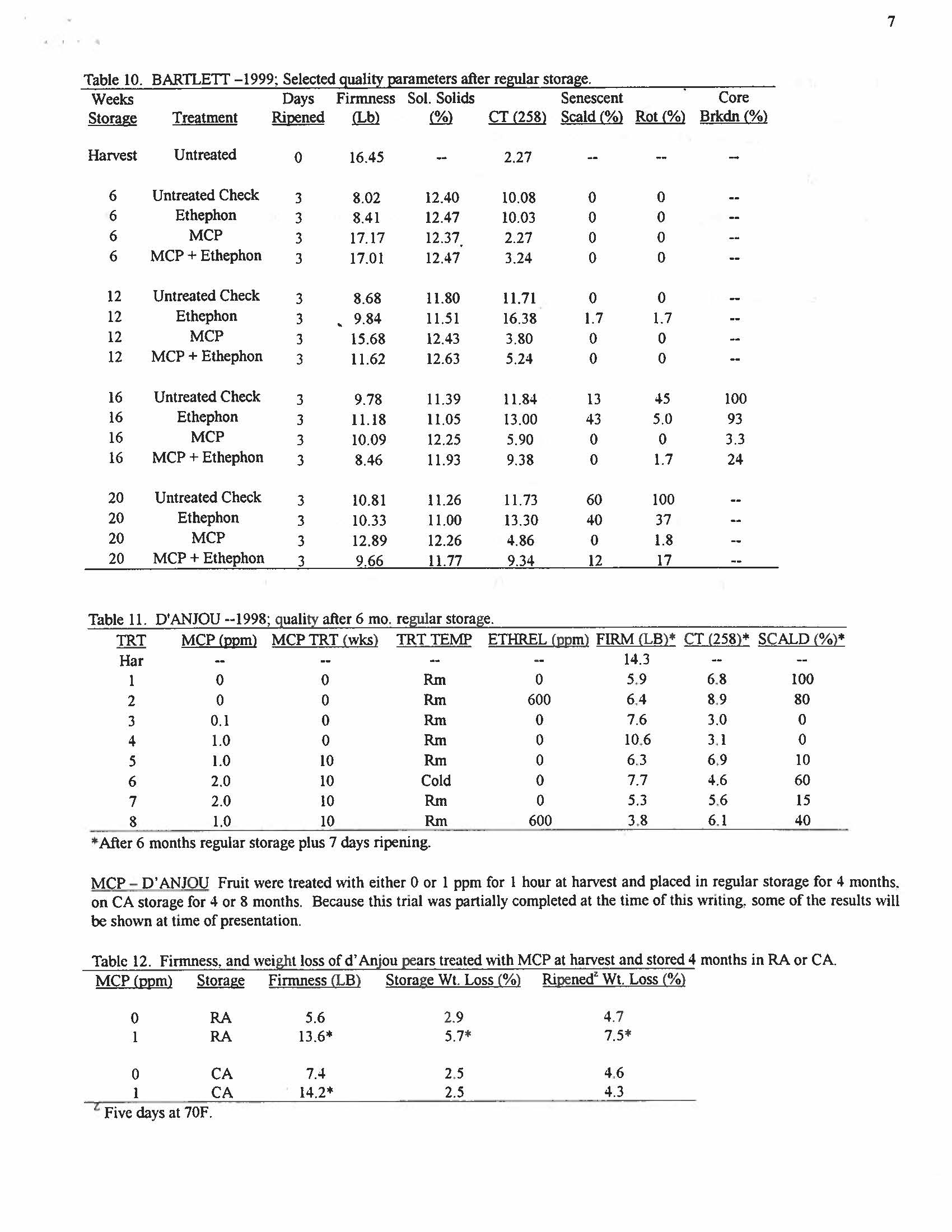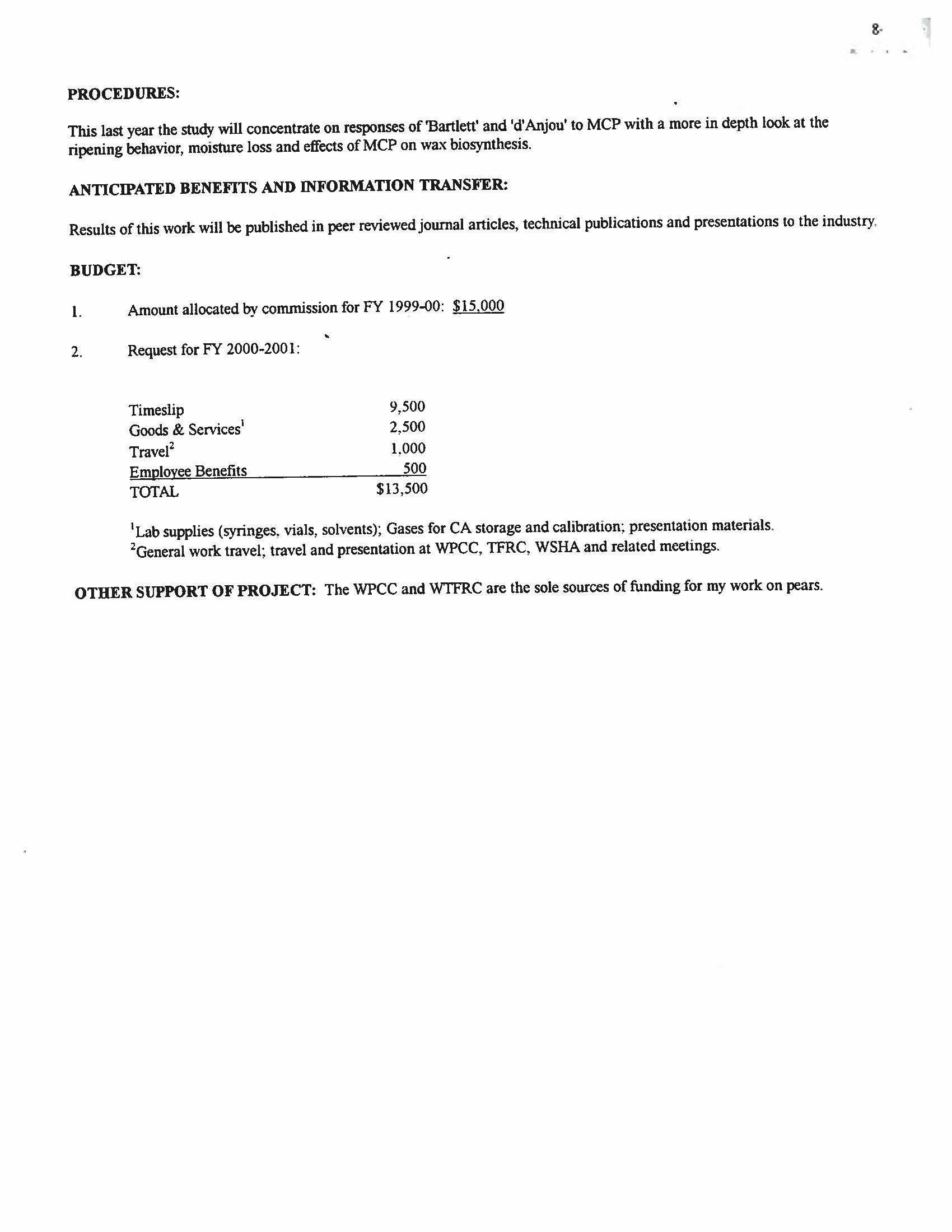Retain and MCP on ‘Bartlett’ and ‘d’Anjou’ Pears
Author: Dr. Eric A. Curry
Published: 2001
Summary: Summer pears such as 'Bartlett', when mature. develop the capacity to autocatalytically enter a climacteric ripening phase. whereas winter pears like 'd' Anjou' are normally unable to autocatalize ethylene production without an inductive cold period of about 60 days. During 'Bartlett' maturation, ACC accumulates. ACC, formed by the enzyme ACC synthase, is then converted to ethylene by the enzyme ACC oxidase. Retain™ (AVG) inhibits ethylene by inhibiting ACC synthase. Thus, from the time it is applied until it is diluted, destroyed or metabolized, it inhibits the further formation of ACC. In 'd' Anjou pears, however, because ACC toes not accumulate at the same rate or magnitude, one would expect AVG to have a different effect on ripening. In apples, AVG has been shown to inhibit ethylene-induced abscission if applied before the onset of ethylene biosynthesis in the abscission zone. It also inhibits ripening of apples when applied as early as 4 weeks before harvest. AVG has also been shown to delay ripening of'Bartlett' and 'd'Anjou' pears, however, results have been variable presumably because of extenuating environmental circumstances. 1-Methylcyclopropene (MCP) is a more recently developed compound that delays ripening through a different mechanism. Instead of inhibiting ethylene biosynthesis, it inhibits ethylene action. Presumably, this compound binds to ethylene receptors and prevents ethylene from autocatalysis. Preliminary data indicate it is effective in climacteric tree fruit. Because 'Bartlett' and 'd' Anjou pears could benefit from reduced drop as well as lengthened storage life. it would be useful to investigate the effects of such fruit ripening regulators on fruit quality during storage.
Keywords:

